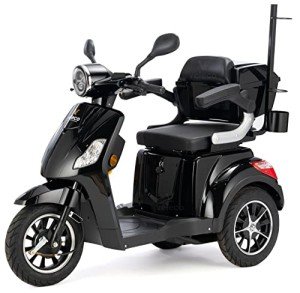Mobility Scooters: A Comprehensive Guide
Mobility scooters have become an essential mode of transport for lots of people dealing with mobility difficulties. This post checks out the numerous facets of mobility scooters, including their types, advantages, functions, and a guide for potential purchasers.
Understanding Mobility Scooters
Mobility scooters are electrically powered devices developed for people with minimal mobility. They provide a method of transport for individuals who may have problem walking but still desire to keep their independence. They come in numerous styles and functions to deal with a large range of requirements.
Kinds Of Mobility Scooters
Mobility scooters can usually be categorized into three main types:
| Type | Description | Best For |
|---|---|---|
| Compact Scooters | These are small and lightweight, ideal for inside and short journeys. | Users with limited storage area or those who travel typically. |
| Mid-size Scooters | A balance between portability and stability, ideal for both indoor and outdoor use. | Those who require to cover a range of terrains. |
| Durable Scooters | Large and robust, developed for rugged outdoor use and much heavier individuals. | Users requiring additional weight capacity or going off-road. |
Secret Features of Mobility Scooters
The choice of mobility scooter frequently depends on the functions that align with individual needs. Here are a few of the crucial functions to consider:
- Weight Capacity: Mobility scooters feature various weight limits. It is vital to select a scooter that can adequately support the user's weight.
- Variety: The distance a scooter can take a trip on a single charge differs. Depending on user needs, one may opt for scooters with a variety of as much as 40 miles.
- Speed: Most mobility scooters can reach speeds between 4 to 8 mph. Consider what speed is comfy and safe for the desired environment.
- Turning Radius: A compact turning radius is vital for indoor usage, permitting much easier navigation in tight spaces.
- Battery Type: The type of batteries utilized can affect the scooter's performance. Lead-acid and lithium-ion batteries are the most common.
Advantages of Using Mobility Scooters
The benefits of mobility scooters extend beyond simply transportation. Some key advantages include:
- Independence: Users can browse their environment without relying on caregivers, promoting independence and confidence.
- Health Benefits: Using a scooter can encourage outdoor activity, resulting in physical and mental health enhancements by minimizing feelings of isolation.
- Convenience: Scooters can quickly be run in different environments, whether inside, in shopping center, or outdoors.
Essential Considerations When Buying a Mobility Scooter
When purchasing a mobility scooter, numerous considerations can help make sure that you select the best model:
Assess Individual Needs:
- Mobility level: Consider how much help the individual will require.
- Variety of usage: Determine where the scooter will mostly be utilized (indoors, outdoors, on rough terrains, and so on).
Test Drive:
- Always test drive several designs to find an ideal fit. Take notice of comfort, ease of steering, and the scooter's responsiveness.
Review Safety Features:
- Look for scooters with appropriate security functions like lights, indications, and anti-tip styles.
Check Warranty and Service Options:
- A reliable service warranty and readily available service alternatives are vital for long-term use.
FAQs about Mobility Scooters
1. How quickly do mobility scooters go?Mobility scooters usually have speeds varying from 4 to 8 miles per hour, with many developed for safety rather than high-speed travel. 2. Exist weight restrictions on mobility scooters?Yes, mobility
scooters feature specific weight limits, frequently ranging from
250 pounds to over 500 lbs, depending upon the design. 3. Can mobility scooters be used indoors?Certain designs, particularly compact scooters, are specifically created for
indoor use and are much easier to navigate in tight areas. 4. How frequently do the batteries need to be replaced?Battery life can vary based upon usage, however typically, with proper care, batteries might last between 1 to 3 years before requiring replacement
. 5. Are mobility scooters covered by insurance? go to this website can differ, however some insurance strategies, consisting of Medicare and Medicaid, might cover part of the cost. It's suggested to talk to private insurance coverage companies. Mobility scooters function as a
valuable tool for many people, enabling them to preserve
their liberty and independence. By understanding the different types and functions of mobility scooters, people can make informed decisions customized to their particular needs.
Whether utilized for errands, socializing, or leisurely activities, mobility scooters can enhance the lifestyle for those with mobility constraints. Buying a mobility scooter is a decision that can considerably affect a person's every day life. For that reason, individuals must thoroughly examine their choices and choose a design that best aligns with their way of life and mobility requirements
.

